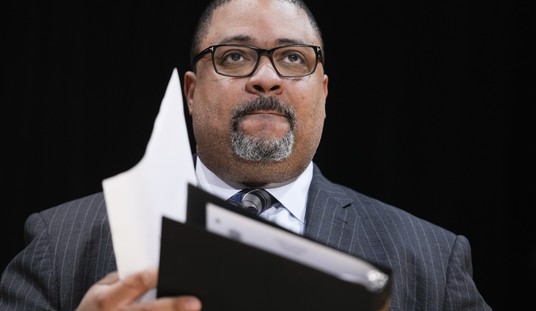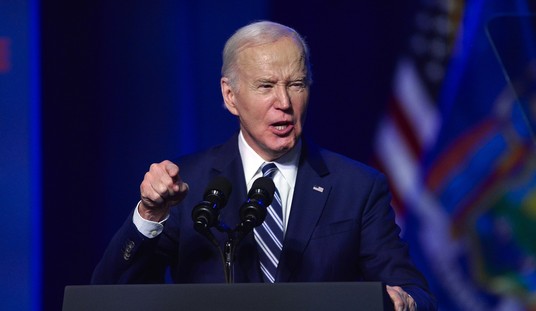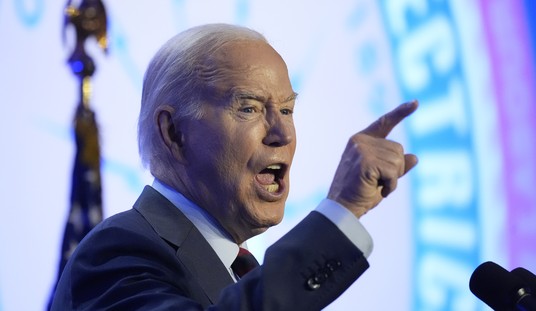Pretty much everything Yves Smith says in this New York Times op-ed piece is true, although she elides a lot of details, probably to fit in the available space. (It’s not for lack of knowledge. She’s totally up on this situation and has been from nearly the beginning.) She doesn’t really tie all the threads together, though.
Mechanically, the problem is that many people who have initiated foreclosure proceedings don’t have a clear paperwork trail documenting their ownership of the mortgage note, and thus their standing to foreclose.
Lots of people (particularly on our side of the political aisle) say that this is all just a paperwork snafu, even if longstanding rules haven’t been followed and certain law firms seem to have made a systematic business out of forging documents for large banks.
This view holds that, regardless of the screwups, homeowners with mortgages still owe money to… someone, whoever that someone happens to be. (True.) And we ought to trust people who assert a right to foreclose. (Not necessarily.)
In the first place, I’m just not so willing to trust the large banks who now own most of the mortgage originators (like Countrywide) that created the problem. The banks should NOT receive Congressional relief (which Republicans might be inclined to give them) that would absolve them of the need to unambiguously prove their standing to foreclose in each individual case.
It’s not that I assume banks are malicious. It’s that I assume they’re negligent. The volume of foreclosures is now so far above the historical norm that just processing the paperwork has turned into a major bottleneck. And if you can cut corners to get there faster, why not cut corners? As long, of course, as some pesky judge doesn’t insist that your paperwork is all in order.
America’s TARP-supported banks are now as good as part of the government. As such they truly don’t have to care what’s good for their customers, only what’s good for their regulators. Just like government, they can and will do tremendous evil and injustice to individuals. Also like government, they tend not even to see this as a problem, except when it causes bad PR.
In sum, it’s NOT a good assumption that everything is clean and correct when a bank forecloses on someone without clearly documenting their right to do so.
I also don’t necessarily think it’s a good idea to streamline those required chains of paperwork, such as the serial notarized endorsements of a note as it makes its way from origination to the final investor. Doing this electronically isn’t necessarily a problem. Not doing it at all is the problem. We have to insist on proper electronic or paper documentation of each change of ownership. There’s too much potential for real abuse otherwise. If this means losing the assembly-line process of the past few years and getting back to the (more costly) model where your banker knows your situation personally, well, that may not be such a bad thing.
So Yves finishes up by claiming strongly that the paperwork problem is really, really bad. And I agree with her. But there’s an even bigger problem that needs to be emphasized.
The bigger problem is that we still have a huge mismatch between the value of mortgages that have been contracted, and the current value of the underlying properties. Authorities in two administrations have simply found it impossible to deal with this problem, and they’ve been at it for three years now.
The mismatches are going to have to recognized as losses by someone, somewhere. And there are only three classes of people that can do that: homeowners, banks/originators/investors, and taxpayers. The game for people in the first two groups is to shift the losses to one or both of the other groups. The game for taxpayers is to vainly exercise the only power they have, which is to vote for different representatives every couple of years.
To date, the game has been rigged in favor of the originating banks and funding entities like Fannie Mae and Freddie Mac. It’s been rigged against homeowners, taxpayers, and the economy as a whole, as the failure to resolve the mortgage bubble continues to inhibit productive investment and job creation.
Yves suggests an idea that has been around for a long time: come up with a legal framework that allows judges who adjudicate foreclosures and bankruptcies to impose a reduction in the principal amount of the loan. This idea transfers value from banks to homeowners, so at least it takes a clear point of view on who has to take the pain. (One attractive wrinkle is to cede any future equity appreciation from the homeowner to the bank, in effect making the homeowner more like a renter.)
There is a constitutional problem with this idea: it violates the sanctity of private contracts. But Barack Obama has already proved that this is of no concern to him, for example by his actions in the Chrysler takeover.
Another problem is practical: how do you make a law that gives judges broad discretion to rewrite contract terms, in support of what is actually a social goal not of direct interest to the contracting parties? And how do you deal with the unintended consequences? In the worst case, whenever two parties sign on the dotted line, the government will be there as an implicit third party with broad but unspecified rights.
Overall, though, this could end up being a workable approach. Especially since there is a safety valve: TARP. Banks that are forced to write down mortgages to avoid foreclosures will have a clearly justifiable claim on taxpayer money to keep them out of bankruptcy.
And Yves’ final point is completely right: this is pain that is going to hurt the economy. There simply is no choice. Whoever ends up taking losses is just going to have less power to consume. To me, the sooner we resolve this mess, the better.
One more point: this whole foreclosure mess is emboldening a very interesting class of people, namely investors in mortgage-backed securities. These people have been feeling burned since the crash, but they’re all qualified investors who have no good answer when you say “Well, you should have known better.”
So now some of these people are trying to “put” their investments back to their issuers, on the grounds that they’re fraudulent. This isn’t because of the paperwork snafus per se. It’s because the investments were represented as secured, meaning that under distress, the investor would have an unencumbered right to take possession of the loan collateral, namely the house. The paperwork problems mean that the security rights of the investors are clouded at best, ergo they claim that they paid for something they didn’t receive.
If someone brought that case to me, I’d first want to know how owning one one-thousandth of a mortgage in a subordinated tranche of some over-the-counter security conveys a practical right to foreclose in the first place. Does each one-thousandth holder have the power to exercise the security rights of the other 999/1000ths?
But forget about that. These cases will go forward, partly because of who’s making the claims. One of the claimants is the New York Fed.
Yes, that’s right. The New York Fed is seeking the right to put mortgage-backed assets back to their issuers, by way of discharging their fiduciary duty to the taxpayers.
Why? Because of Bear Stearns. Remember how the Fed set up the first Maiden Lane entity to buy $30 billion of mostly mortgage-backed paper from Bear that Jamie Dimon didn’t want because he had no way to value it? Now that the Fed are showing large losses on that stuff (big surprise), they’re trying to make it someone else’s problem.














Join the conversation as a VIP Member